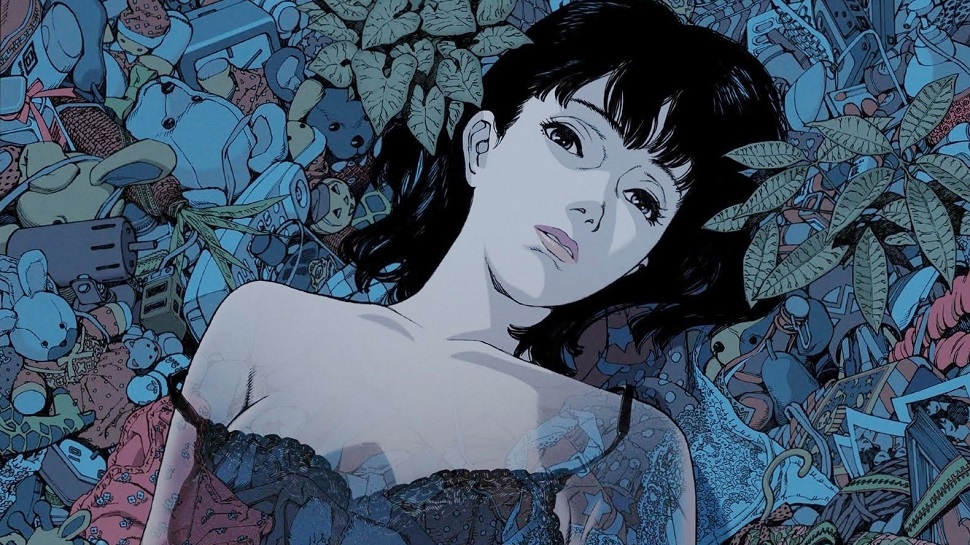English Dub Review: “Perfect Blue” 20th Anniversary
I’m not sure what to believe.
This year marks the twentieth anniversary of the late Satoshi Kon’s first film Perfect Blue. Kon, a masterful writer and director of anime, specialized in a type of surrealism that live action couldn’t provide. His cuts blur the lines between reality and fantasy in a way that only makes sense from a distance and reward an observer upon repeated viewings. Despite the extraordinarily high number of edits he makes, he still delivers a completely seamless product, perfectly paced and fluid. While some of his other films (Paprika, for instance) use this style with a defter hand, this is the perfect jumping on point for anyone who’s curious about Kon or the Hollywood A-listers (like Christopher Nolan or Darren Aronofsky) he’s inspired.
Perfect Blue itself is about a pop idol named Mima who switches from singing to acting to try to give a second act to her flagging career. Not everyone is happy about this evolution in her working life, however, and an obsessed fan begins to stalk her just as she starts to lose her grip on reality. Despite a series of dream sequences, shared psychoses and elaborate gaslighting schemes, Mima does everything she can to regain her sanity, while under attack from her public, the studio and the increasing demands of her agency.
After twenty years, the film does show its age a little bit. The plot is fairly technophobic, revolving around the early internet. In fact, Mima’s technological ignorance is an important part of the first act and provided a few unintended laughs in the audience I was in. This doesn’t work against the film, however, as the issues addressed—catfishing, cyberstalking, and some pre-incel culture—are even truer today than when they were written. Ditto the focus on the gruesome nature of crime shows that were just getting their start in the late 90s. Perfect Blue didn’t know how right it was, seeing as Law & Order: SVU will enter its twentieth season soon.
None of this prescience ever gets in the way of a good story, however. Kon would never allow that. The central mystery honestly had me guessing nearly all the way through. The film distances Mima from nearly every other character in the film, making any one of them a potential suspect, in addition to Mima herself. Add to this the Russian nesting doll effect of the various un-realities, and to say I was feeling disoriented would be a gross understatement. Kon does a phenomenal job of knowing just when you’re feeling comfortable so that he can plunge you into the deep end, and sensing exactly when it’s time for you to be pulled out. His sense of rhythm is truly impeccable.
I must say, here, however, that this is a heavy film. It is not for the faint of heart, or for anyone triggered by sexual violence, Perfect Blue does contain both a very intense simulated rape scene and a similar attempted rape scene. I’ve often said that I believe nearly anything can be depicted in art if done in a considered and respectful way. I think Kon has done a pretty tasteful job here, but it’s still worth saying. Perfect Blue creates a dichotomy between the innocent world of the pop idol and the lurid one of the actress. This marks a turning point in which consent to the public eye cannot be revoked and what those doing the observing believe that they are entitled to. He does use sexual violence to do it, though, and that should be noted.
For Kon, modern life is surreal and fame is all the more so. The computer invites unreality into the film, and the camera is almost universally an invading force. It’s truly a pity that we’ll never get to see Kon’s thesis on our age of social media. In Perfect Blue, the things that are created online manifest themselves into real-life consequences, and in a time when that’s exactly what has happened the world over, one can only imagine what worlds within worlds we’d be taken to.
Speaking of, the film also has an incredibly unique sense of place. There are only a few locations throughout the film, but their repeated use, in different contexts and with slight alterations, makes all the difference. I’ll definitely have to go back and watch the film again, just to see how much was foreshadowed without my immediate notice. There’s a particular scene at the end that snaps all of these considerations together, but each detail I did track is subtly and effectively laid out earlier in the film.
If I had to nitpick, it would only be to say that the film occasionally overindulges in what it wants to criticize. I think that Kon makes great use of implication in his kill in the parking garage, but then the one in the apartment is incredibly visceral. I think the same thing about the photo-shoot and the recurring scenes of waking up, as it pertains to nudity and fan service. I think his point is clear, and the audience is made to feel uncomfortable, without going as far as he does, but again, I think these are minor complaints.
Perfect Blue is a bit of an odd duck. It’s definitely a reactionary film in some respects. It’s wariness of technology and its old man complaining about the entertainment industry telegraph the film as one thing, but it’s feminist politics and astute observation point in the opposite direction. I think this film is a lot like the issues it tackles—complicated. It’s hard to judge a twenty-year-old film with any eyes other than the ones who saw it today, but despite the fairly unforgiving standards I hold older works of art too, Perfect Blue fares pretty well.
I’ll leave with something I thought was fairly interesting. In the original Japanese dub of the film, the final line is said by a different character than the one that says it in the English version. This changes the ending quite a bit. I don’t want to spoil the finale, but for those who have seen the film, I think I like the English version better. It takes what I thought a cutesy twist and asserts something I think worth saying in 2018—we are not who we are online, or at least we don’t have to be.
























"There are also other characters that come and go (also owned by the Warner Bros. Discovery conglomerate media company)."
Huh. Is that just referring to other characters from the show itself, or is this implying that the new season is going to have cameos from other WBD IPs